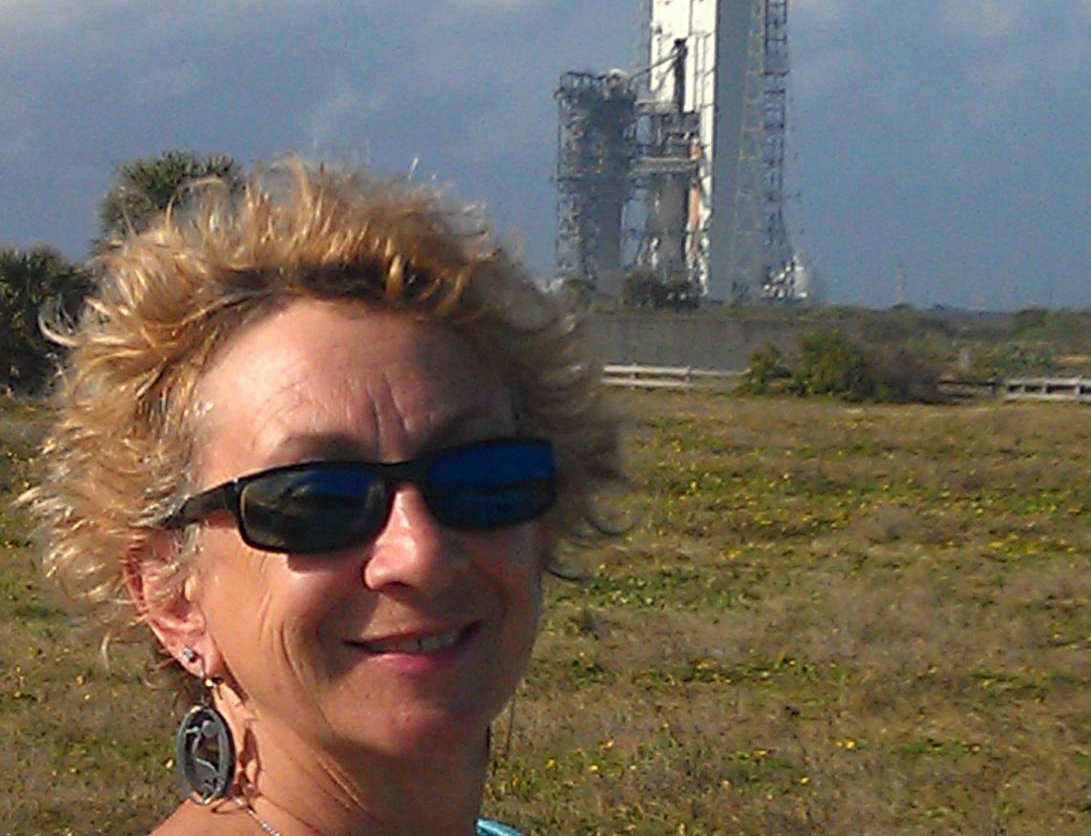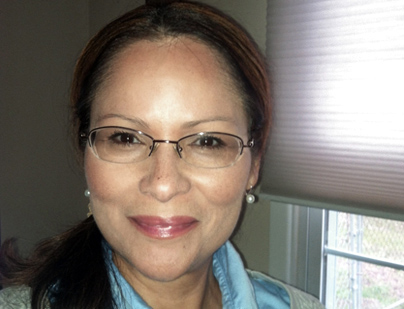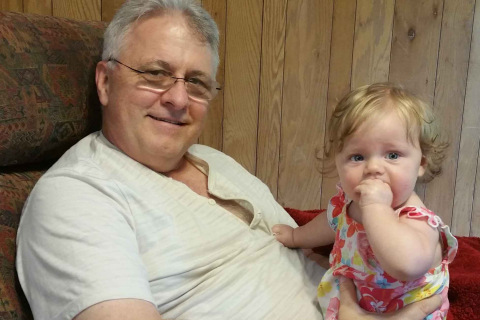Thrill-Seeking Mesothelioma Survivor Has Will to Live

Fact Checked | Written by: Tim Povtak | Last Update: 10/25/2024 | 7 Min Read
In one of their last conversations before her 10-hour operation, Cindy Christopher and Dr. James Pingpank talked about roller coasters.
She was determined to ride again. He promised to join her.
Now, they soon may ride together in celebration.
Christopher is an 11-year peritoneal mesothelioma survivor from Syracuse, New York, who exceeded everyone’s expectations but her own, still lighting up rooms with an infectious optimism that supports her will to live.
“I remember the doctor telling me his first job out of high school was at Dorney Park in Allentown [Pennsylvania], which is where I ride roller coasters,” Christopher told Asbestos.com. “That reminds me. I’m going to write him a letter now and see if he still wants to join me.”
Christopher, 65, endured extensive cytoreductive surgery and heated intraperitoneal chemotherapy (HIPEC ) that day in 2006 at the National Institutes of Health Clinical Center in Bethesda, Maryland.
It forever changed her life, but not her way of life.
“I can still outride anyone,” she said with a laugh. “I told him I will live to roller-coaster another day. And I have. I don’t do the old wooden ones anymore. My back can’t take those, but I love all the others.”
Christopher’s Longevity Defies the Odds
Pingpank has since moved to the University of Pittsburgh Medical Center, where he still specializes in peritoneal mesothelioma.
Christopher spent two years returning regularly to see him for checkups at the NIH hospital, then eight years with her local oncologist.
She keeps returning home with no sign of cancer recurrence.
“My dad lived to 92, my mom to 83, so I have longevity on my side. I really believe I’ll go all the way to the end now,” she said. “I know what the experts say, but I don’t think it [mesothelioma] is going to come back. Something else will probably get me before then.”
Although patients with peritoneal mesothelioma (abdomen) typically live longer than those with the more common pleural mesothelioma (chest), there still is no definitive cure.
Life expectancy for peritoneal patients usually ranges from 1 to 5 years.
“I was fortunate to find the right doctor and the right place to be. I asked questions. I did my homework,” she said. “In a way, I was a guinea pig in a new protocol, and it worked. Not all cancer institutes are doing the same thing. I chose the best possible surgeon, and I told him definitively, I will be your best patient.”
Working Is Her Passion in Life
Christopher has become a beacon of hope for many. She was once a physical education teacher and a youth sports coach, then a registered nurse.
She spent the last 18 years in the gardening department at her local Home Depot, where customers marvel at her passion for plants, her willingness to teach others, and her gift for gab.
“I think part of staying alive is having a passion in life, and you’ve got to work your passion,” she said. “I came into the job interview [at Home Depot] with dirt on my knees. If your job isn’t your passion, then find a hobby that is. Teaching and gardening — that’s why I’m here.”
Christopher has contemplated retiring, but she never does. She returned to work less than six months after aggressive surgery with her belly still herniated. Over the years, she battled thyroid cancer and skin cancer. She had knee replacement surgery in 2016.
But she keeps coming back to work.
“I never catch a cold or get sick. I just collect cancers,” she said. “I’m pretty resilient, though. You can blow up firecrackers behind me, and I don’t jump. I ride motorcycles, but I’m careful, and I don’t take chances. My will to live is strong.”
Looking for Something New Every Day
At work, she still pulls the carts with pallets of sod, bags of fertilizer, and dozens of plants, large and small. She greets new customers with a smile, and often with dirt on her hands and a smudge on her face.
Unless she tells them, people would have no clue she is a cancer survivor. Away from work, she eats healthy, exercises regularly and stays busy. She works to keep her immune system strong.
Christopher likes trying new things, including meeting new people and taking different routes home after work, looking for changes along the way.
“My father told me once, if you’re not learning something new every day, it’s a lost day,” she said. “The joy of life is always there, but you have to look for it. If you don’t, you’re wasting your life.”

Cindy Christopher with her family.
Throughout recovery, she worried about her daughter, Corey, who was away at college studying engineering, and her husband and caregiver, Cris, who carried the load around the house.
“It’s not just you, it’s the people around you who need encouragement,” she said. “But nothing is easy in life. It’s hills and valleys, and you just keep going.”
‘I Had a Catharsis’
Christopher’s low point was not her mesothelioma diagnosis but the early stages of recovery after surgery.
For the first time in her life, she grew depressed. She was not seeing progress. The pain medication stole her enthusiasm, and she felt horrible lying around doing nothing.
“I felt so sad for myself. I was just sick and tired of feeling so bad. I started crying,” she recalled. “But then I thought I’m here for a reason. I had a catharsis. And I said, this is the day, a new starting point for me, and I will absolutely start getting better. Everyone has to reach that low point before turning it around. You just can’t sit there and feel sorry for yourself.”
She started walking, slowly climbing the stairs in her home as she clung to the handrails. She called her boss at work and asked to be put back on the schedule, even before she was physically ready.
She looked on the internet to find the opening date of the season for Dorney Park. She wasn’t ready to ride just yet, but she circled the date on her calendar.
“Like many people given a second chance, I prioritize my life now. I’m like a cheerleader anyway,” she said. “I don’t go to church, but I’m spiritual. I came to the conclusion I have more work to do for humanity. There is more good to be done. There is more beauty in life to see. There is more to life than hanging out and feeling sorry for yourself. There are more roller coasters to ride.”
Thrilled to Be Riding Again
Christopher talks about the Rolling Thunder ride at Darian Lake Theme Park south of Rochester, New York; the Wild Mouse at Dorney Park; the Dragon Challenge at Universal Studios in Orlando, Florida; and the rides at Cedar Point in Sandusky, Ohio, the self-proclaimed “Roller Coaster Capital of the World.”
She has been to all of them since her surgery 11 years ago.
Her voice quickens during the conversation. She talks proudly about a trip to Dorney Park last summer when she and Corey arrived just as the gates opened.
They rode five times in 20 minutes before collapsing on a park bench to catch their breath. She calls it a “yo-yo.”
“You go to one of those parks and it’s an adrenaline rush for a day and a half,” she said. “When it wears off, you’re really tired. I don’t ever want to let go of that.”





